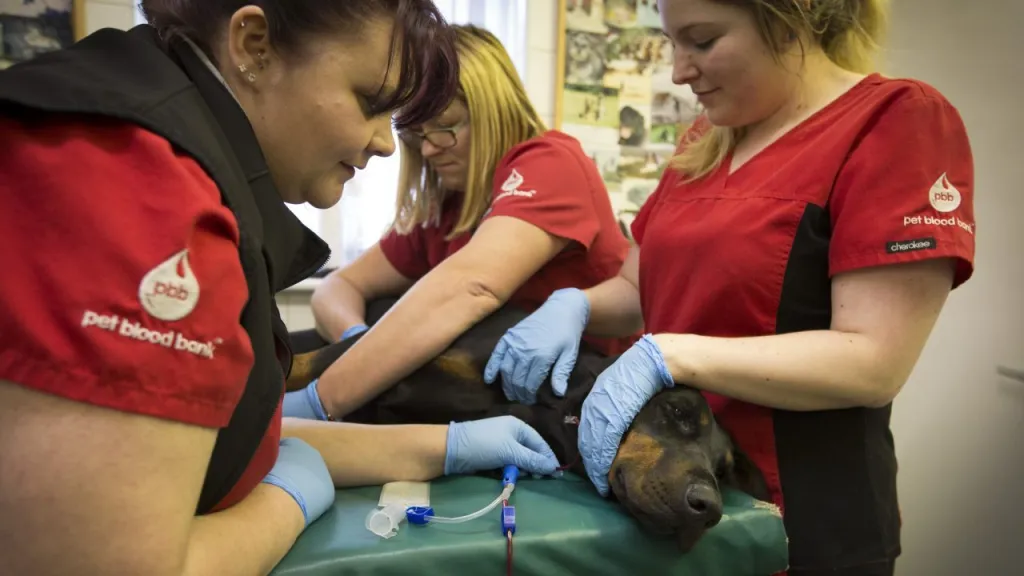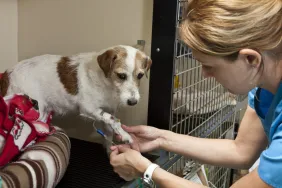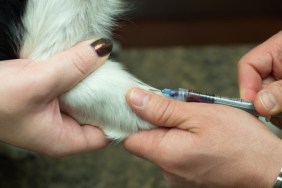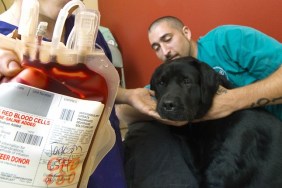A dog from Queen Creek, Arizona, is lucky to be alive after hundreds of killer bees attacked him. The Great Pyrenees needed a blood transfusion in order to survive the ordeal.
Dog stung over 50 times by killer bees needs blood transfusion
According to local news outlet Arizona’s Family, a dog named Pippin was stung more than 50 times by killer bees in late May. His dog dad, John Fischer, was stung over 250 times. While Fischer suffered only a mild allergic reaction, Pippin didn’t fare so well.
“He was basically really unable to eat anything. He was drinking very little. I’m sure he was dehydrated, and he had that look in his eye like you know, ‘This might be it,’” Fischer told Arizona’s Family.
Fischer took his fur baby to the GQ Emergency Vet and Specialty Center. Dr. Erin Greenwood determined that the Great Pyrenees needed a blood transfusion because his body was “attacking his red blood cells,” according to the news outlet.
“If that would’ve continued to happen without our intervention, it would’ve continued to drop. He wouldn’t have oxygen to his tissues, and his vital organs would start to shut down,” Dr. Greenwood said.
The clinic happened to have blood available thanks to a recent delivery from Canine Blood Heroes, a blood donation facility. Not every dog in a similar situation is so lucky.
“We’ll get a couple units at a time, but if we go through that, we may not have any blood until we get our next order. Often times, we’re calling neighboring clinics and neighboring clinics call us when they need it,” Dr. Greenwood said.
In addition to the blood transfusion, the ailing canine received a hyperbaric treatment, meaning he was placed in an oxygen chamber to facilitate healing.
The blood transfusion saved Pippin’s life. His dog dad is grateful. “Pippin and I have that bond. And I couldn’t imagine life without him,” Fischer said.
More blood donations needed to help dogs
There is a need for more blood donations from and for dogs. That’s why the GQ Emergency Vet and Specialty Center is planning to start its own blood bank. First, it needs a donor program. Dr. Greenwood said the clinic currently has eight canine universal blood donors. The program needs 15 to 20 more dog donors to keep a steady supply of blood. That’s because dogs can only donate once every two months or so.
What’s more, canine blood donors must be between 1 and 7 years old, weigh over 50 pounds, and be in good health. Dr. Greenwood said that the dog breeds that do best with donating blood are Greyhounds, Golden Retrievers, and Labrador Retrievers.
Only one in eight dogs have a universal blood type, but the center is accepting donors of every blood type. Don’t know your dog’s blood type? No problem. The center offers free blood type tests for dogs.
If you live in the area and are interested in having your dog donate blood, call the center at (480) 674-3200 or visit its website.









